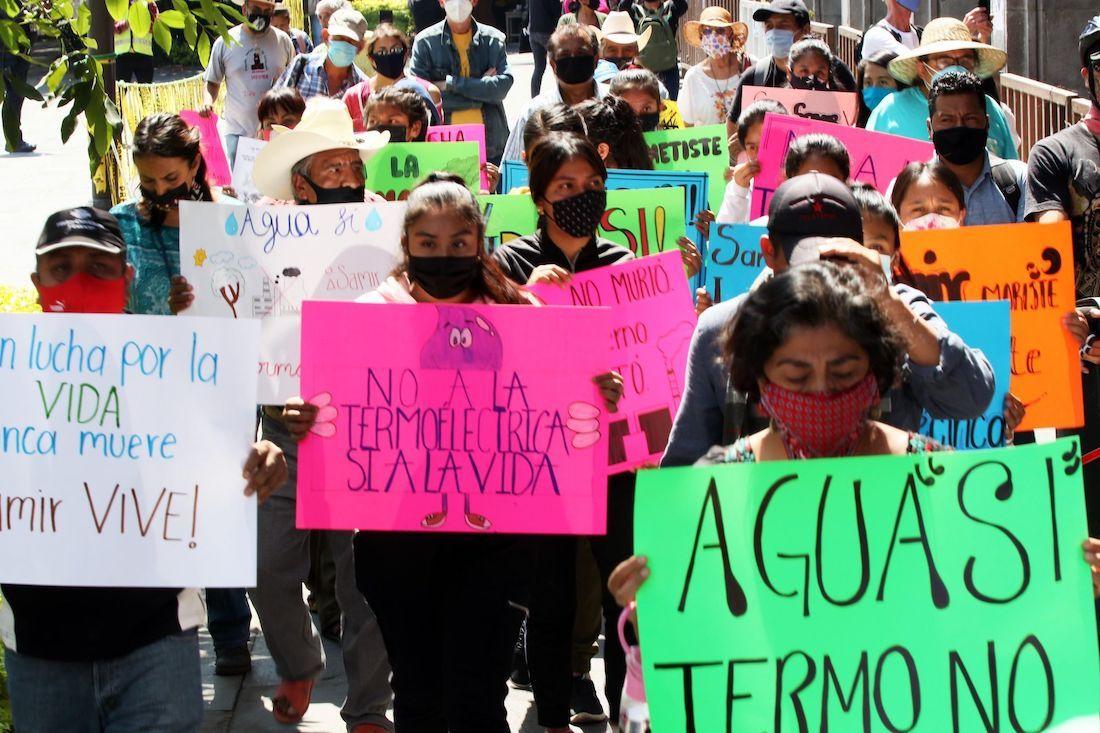The construction and operation of the Morelos Integral Project (PIM), a gas pipeline that crosses the states of Morelos, Puebla and Tlaxcala, in south-central Mexico, has compromised the security of opposing communities since 2012.
The PIM has been linked to the imprisonment of people who defend the environment and their community; to the closure of two community radio stations; harassment of activists and the murder of the communicator and indigenous activist, Samir Flores.
The path to an energy transition seems to generate more conflicts than solutions, said Juan Carlos Flores of the People's Front for the Defense of Land and Water of Morelos, Puebla and Tlaxcala, an organization of indigenous Nahuatl communities, in the panel Natural Gas, Just Energy Transition and Human Rights, organized by Project on Organization, Development, Education and Research (Power).
However, the commitment to natural gas production continues in Mexico, with the construction of 13 power plants at the door, promoted by the Federal Electricity Commission (CFE), the company responsible for generating, managing and commercializing electrical energy in Mexico, said Luca Ferrari, a researcher at the Geosciences Center of the National Autonomous University of Mexico.
These projects are considered to be beneficial to the community, but according to Juan Carlos they respond more to an extractivist logic that serves industries and not to the needs of communities.
The report by the organization Poder shows that, from 2000 to 2021, Mexico has increased an average annual rate of 15.5% in natural gas imports from the United States.
Mexico imports 80% of the natural gas it consumes, mainly through pipelines from the United States, and intends to be an exporter of this resource to other countries.
A fair horizon
Latin America is still dependent on fossil fuels. First of all oil, second of coal and the third of natural gas, however, there are countries such as Mexico, Argentina, Trinidad and Tobago and Venezuela, where gas is the most consumed source of energy, according to Poder.
Dependency represents a risk not only to sovereignty, but it also puts you at a disadvantage in the face of future conflicts and negotiations with the United States, Ferrari said.
Half of the total energy required by Latin America comes from oil and its derivatives. The region now faces the challenge of implementing progressive public policies to rapidly eliminate this dependence on fossil resources and at the same time the socio-ecological problems that generate this type of project, explained Anaid Velasco, research coordinator of the Mexican Center for Environmental Law (CEMDA).
The role of natural gas would be that of a bridge energy to renewables, Velasco said, a transition in which the region is late.
The report points out that natural gas's key role in the energy transition is due to low greenhouse gas emissions. But he stresses that more information is essential on the impacts it will have on the environment and on the human rights of the population.
Flores believes that formal politics is ineffective in the face of insecurity, since it is a structural problem that requires changing the capitalist development model.
“Already in itself, we can see a very deplorable situation in the PIM, but not only in that one, but in many of the megaprojects that are being installed in the country that are creating a very strong insecurity that we either organize ourselves or we perish,” he said.
The organization of communities will only be possible in conditions of security that guarantee greater citizen participation and access to public information, Velasco said, rights contained in the Escazú Agreement, an international treaty of Latin American and Caribbean countries for environmental protection and human rights.
Another alternative that complements community organization is de-escalation, understood as a process of reducing energy consumption, since renewable energies do not represent less socio-environmental conflicts.
Ferrari divides it into three steps: the construction of an industrial system in accordance with the internal needs of Latin American countries, the democratization of access to resources and the redistribution of wealth; necessary steps for a just energy transition.



Comentarios (0)